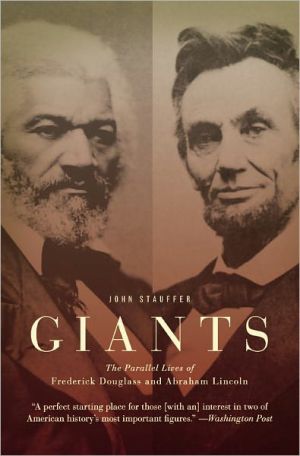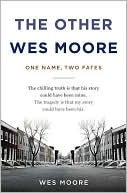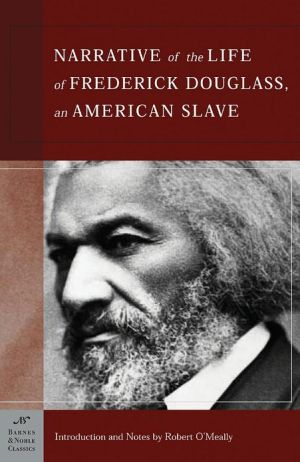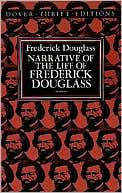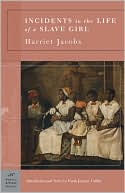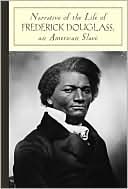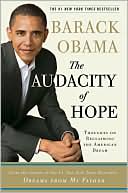Giants: The Parallel Lives of Frederick Douglass and Abraham Lincoln
Frederick Douglass and Abraham Lincoln were the preeminent self-made men of their time. In this masterful dual biography, award-winning Harvard University scholar John Stauffer describes the transformations in the lives of these two giants during a major shift in cultural history, when men rejected the status quo and embraced new ideals of personal liberty. As Douglass and Lincoln reinvented themselves and ultimately became friends, they transformed America.\ \ \ Lincoln was born dirt poor,...
Search in google:
Frederick Douglass and Abraham Lincoln were the preeminent self-made men of their time. In this masterful dual biography, award-winningHarvardUniversity scholar John Stauffer describes the transformations in the lives of these two giants during a major shift in cultural history, when men rejected the status quo and embraced new ideals of personal liberty. As Douglass and Lincoln reinvented themselves and ultimately became friends, they transformed America.Lincoln was born dirt poor, had less than one year of formal schooling, and became the nation's greatest president. Douglass spent the first twenty years of his life as a slave, had no formal schooling-in fact, his masters forbade him to read or write-and became one of the nation's greatest writers and activists, as well as a spellbinding orator and messenger of audacious hope, the pioneer who blazed the path traveled by future African-American leaders. At a time when most whites would not let a black man cross their threshold, Lincoln invited Douglass into the White House. Lincoln recognized that he needed Douglass to help him destroy the Confederacy and preserve the Union; Douglass realized that Lincoln's shrewd sense of public opinion would serve his own goal of freeing the nation's blacks. Their relationship shifted in response to the country's debate over slavery, abolition, and emancipation. Both were ambitious men. They had great faith in the moral and technological progress of their nation. And they were not always consistent in their views. John Stauffer describes their personal and political struggles with a keen understanding of the dilemmas Douglass and Lincoln confronted and the social context in which they occurred. What emerges is a brilliant portrait of how two of America's greatest leaders lived.Theresa McDevitt - Library JournalMany books have examined the life of Abraham Lincoln and analyzed his attitudes toward blacks and emancipation. In this comparative treatment, Stauffer (English, Harvard; Black Hearts of Men: Radical Abolitionists and the Transformation of Race) traces the extraordinary life journeys of Lincoln and Frederick Douglass from humble origins to national prominence, emphasizing their brief and unique friendship. Enlivening the story with rich detail and well-chosen quotations, Stauffer offers insight into Lincoln's personal and political attitudes toward blacks through an examination of his relationship with the great abolitionist orator whom he treated with courtesy and respect even when his steps toward emancipation and full equality for African Americans were, in Douglass's eyes, agonizingly slow and limited. This interesting book, which grew out of a well-well received article in Time magazine, is recommended for large academic libraries, even those that already own individual biographies of these men.
Prologue: Meeting the President (August 10, 1863) 11 Privileged Slave and Poor White Trash 252 Fugitive Orator and Frontier Politician 673 Radical Abolitionist and Republican 1294 Abolitionist Warrior and War President 2135 Friends 273Epilogue 303Acknowledgments 315Notes 319Index 417
\ Library JournalMany books have examined the life of Abraham Lincoln and analyzed his attitudes toward blacks and emancipation. In this comparative treatment, Stauffer (English, Harvard; Black Hearts of Men: Radical Abolitionists and the Transformation of Race) traces the extraordinary life journeys of Lincoln and Frederick Douglass from humble origins to national prominence, emphasizing their brief and unique friendship. Enlivening the story with rich detail and well-chosen quotations, Stauffer offers insight into Lincoln's personal and political attitudes toward blacks through an examination of his relationship with the great abolitionist orator whom he treated with courtesy and respect even when his steps toward emancipation and full equality for African Americans were, in Douglass's eyes, agonizingly slow and limited. This interesting book, which grew out of a well-well received article in Time magazine, is recommended for large academic libraries, even those that already own individual biographies of these men.\ —Theresa McDevitt\ \ \ \ \ \ Kirkus ReviewsA dual biography highlighting the remarkable similarities and the crucial differences between "the two pre-eminent self-made men in American history."The interest in linking Lincoln and Douglass has never been greater-see, for example, Paul and Stephen Kendrick's Douglass and Lincoln (2008) and James Oakes's The Radical and the Republican (2007)-and surely the intertwined careers of both men support continuing efforts to understand their combined, enduring impact. In five double-barreled chapters focusing on comparable stages in each man's life, Stauffer (History of American Civilization and English/Harvard Univ.; The Black Hearts of Men: Radical Abolitionists and the Transformation of Race, 2002, etc.) explains how Douglass the slave and Lincoln the frontiersman emerged from a culture of poverty, ignorance and violence to international renown. Both were physically imposing; both abstained from tobacco and alcohol at a time when few men did. Both were poetry lovers-they had Robert Burns in common-and both were unsuitably married, Douglass to an illiterate, Lincoln to a termagant. A naturally talented orator, Douglass worked to perfect his writing. Always a good, later a great writer (and a superb editor), Lincoln slowly emerged as an effective public speaker. Addressing public issues, Douglass decided quickly and frequently changed strategies. Lincoln always made up his mind slowly, but then rarely reversed course. Douglass, the radical, never befriended an enemy until after converting that man to his cause. Lincoln, the conciliator, believed that "if you would win a man to your cause, first convince him that you are his sincere friend." Notwithstanding calculated, public statements byLincoln and Douglass, Stauffer goes too far in claiming "an interracial friendship." The author is also oddly willing to speculate broadly on Lincoln's premarital sexual history, and unwilling to reciprocate when it comes to Douglass's extramarital relations. Despite these lapses, Stauffer's dexterous interweaving of biographical detail makes for enjoyable reading and serves as a useful introduction to understanding the dynamic between two 19th-century giants. A frequently insightful look at the makeup of two men who helped remake the country.\ \
